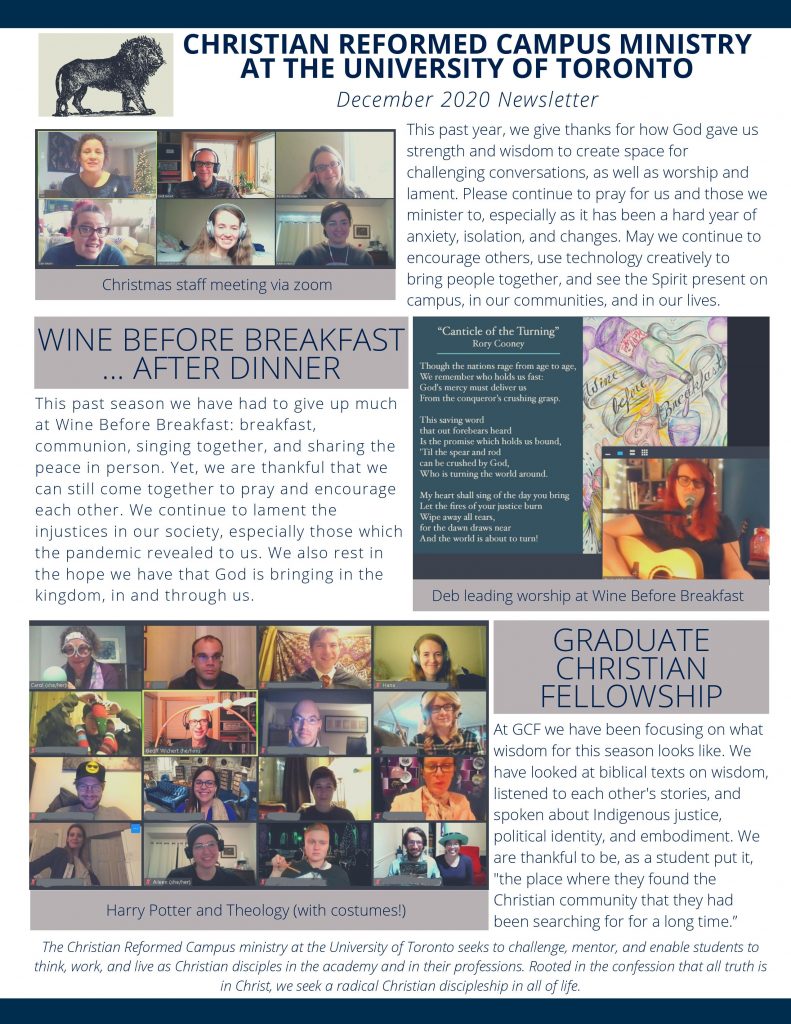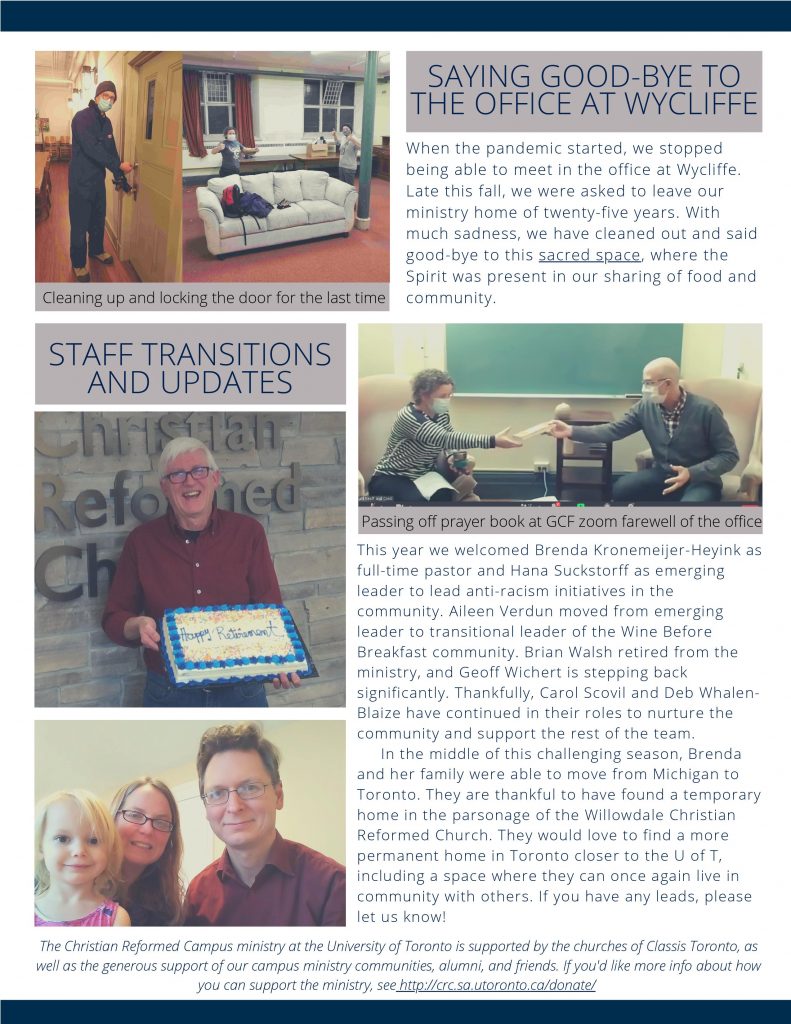Sermon on 1 Kings 19; preached at WBB on October 12, 2021
Many people love superheroes, as they inspire us and help us imagine a different world. Stories about superheroes feel especially important in this season when so much continues to be asked of us.
If anyone could be called a superhero in the Old Testament, it would be Elijah. He speaks and acts with great courage. He is able to run faster than a chariot and even raises the dead. And yet, when we meet him in the passage we read today, Elijah is exhausted: he is terrified for his life, feeling deeply alone, and complaining to God about his situation.
As much as I believe that God used Elijah when he was speaking and acting with great courage at the top of Mount Carmel, it is when Elijah stops doing all those things – and brings to God how difficult the situation is – I believe it is in this moment that we see God most clearly. When the difficulties of his situation force Elijah to recognize that he cannot continue alone in his own strength, that is the moment when we see God’s grace and God’s power in a profound new way.
Exhaustion – and the sense of not being able to continue the way things are – is a hard place to be. Yet, it is also an opportunity to pause. Do we keep trying as hard as we can? Or do we seek God’s presence and allow God to do something new?
Looking back at the previous chapters, we see in 1 Kings 17 and 18 that God cared for Elijah, through providing him food in the time of famine, and God used Elijah to do incredible, powerful things, like raising the widow’s son. The story found here in 1 Kings 19 might then come as a bit of a surprise. How can this be the same prophet that called down fire from heaven? What happened to the superhero we saw in the previous chapters? And why does Elijah declare that he is alone, especially when we see Elijah interacting with another prophet, Obadiah, at the beginning of 1 Kings 18?
What is going on here?
Exhaustion seems to be part of the explanation. Elijah is tired from serving God, he has been isolated from other prophets – all of whom fear for their lives – and he is ready to give up.
And so Elijah does what he can to escape: he flees to the wilderness and there he rests. An angel comes to him, not once, but twice, and gives him food. And this restores Elijah enough for him to take a journey to come further into God’s presence. And there God meets Elijah, encourages him, and invites him into a new journey.
Restoration is something I think we all long for, especially at this stage in the pandemic. We are tired of being apart from people we care about. We are tired of making decisions about what is safest. And we’re not sure how long this will last or what our jobs or even church will look like in the coming year.
Like Elijah, we may be feeling done with all of this. And while hopefully we do not – like Elijah initially asks – desire for God to end our lives, there are many small and large ways that we can escape our lives – we can escape through Netflix or books, through becoming absorbed in work or by clicking on one more link on the internet. We can feel deeply alone and forget that God has not actually asked us to be superheroes.
Looking at the text, it can be easy to say that the solution to our exhaustion is simple. If we just take care of ourselves well enough – that we, like Elijah, would just eat healthier meals and get more rest then we’ll be better. And while God can and does work through food and rest and exercise to restore us, the weariness that Elijah was facing – and that we are facing today – is something deeper than can simply be restored by finding the right diet or the right motivational tools.
This exhaustion that we are feeling – as hard as it can be – can actually be a gift of God. It can provide incentive and space to recognize that our efforts – no matter how hard we try on our own – will not be enough. This weariness is an invitation – are we going to try to keep going as we have been, or do we enter into God’s presence and listen to what God might say to us?
Looking back at the text, we see that for Elijah food and rest were not enough. Elijah’s soul is still weary. Elijah is still done. Verse 10 gives us Elijah’s words: I have been very zealous for the Lord, for the Israelites have forsaken your covenant. I alone am left, and they are seeking my life.”
God answers not by correcting Elijah but instead inviting Elijah to come further into God’s presence – to the mountain, the place where God dwells, for God is about to pass by.
First, there is a wind – so strong that it could shatter rocks – but the Lord was not in the wind.
And then there is an earthquake – but the Lord was not in the earthquake.
And then there is a fire – but the Lord was not in the fire.
And after the fire, there was sheer silence.
And when Elijah heard that, then he went to the mouth of the cave and he spoke to the LORD. Once again, he says the exact same words to God: “I have been zealous for the LORD, for the Israelites have forsaken you. I alone am left and they are seeking my life.”
Once again, the LORD does not correct Elijah. God doesn’t remind Elijah of his fellow prophet Obadiah. God doesn’t remind him of how the people had turned to God after God had sent fire from the sky to light the water-drenched altar. God doesn’t tell Elijah to change his tone and to come back when he sounds a lot less angry – to come back when he is more hopeful and trusting.
Each time Elijah speaks, God hears Elijah. Instead of God telling Elijah to work a little harder, God invites Elijah at this pivotal moment into recognizing the truth behind Elijah’s words. Elijah feels alone because he has been trying to do it alone. And he cannot do this on his own anymore. Elijah desperately needs God’s help.
When God responds to Elijah, God is agreeing with Elijah – yes, you are feeling alone. You must be exhausted. For you cannot follow God faithfully on your own strength.
And so God invites Elijah to trust God again and to imagine a new way of serving God – not on his own but with others. God provides a helper for Elijah in Elisha. God promises Elijah a new king, who will punish all those deserving of God’s judgment. Last of all, God reminds Elijah that he has never been alone – there are seven thousand in Israel who have not bowed down to Baal.
Like Elijah, we, too are invited to come into God’s presence. We are invited to bring all of our troubles to God and expect God’s comfort. We can let go of our own efforts of trying to do things on our own and instead accept God’s help, including through other people.
I invite you thus to join me this week in taking some time to bring your situation, your emotions, and whatever else might be troubling you to God. Be as honest as you’d like, as God can handle our complaints. And I pray that God will show us all where we might be trusting in our own strength and where we could use God’s grace and encouragement, including through other people.
And I believe that just like God shows up to Elijah, God will show up to us.
Perhaps God will show up through silence or through a windy walk, through thundering music, through a fiery conversation, or through meditating on a prayer or biblical text.
As God appears to you, may you know that you are not alone and that you do not need to do things on your own strength. God has provided us with people to help us and God’s grace and power are enough for us all.
In the name of the Creator, the Redeemer, and the Holy Spirit. Amen
– Brenda Kronemeijer-Heyink

